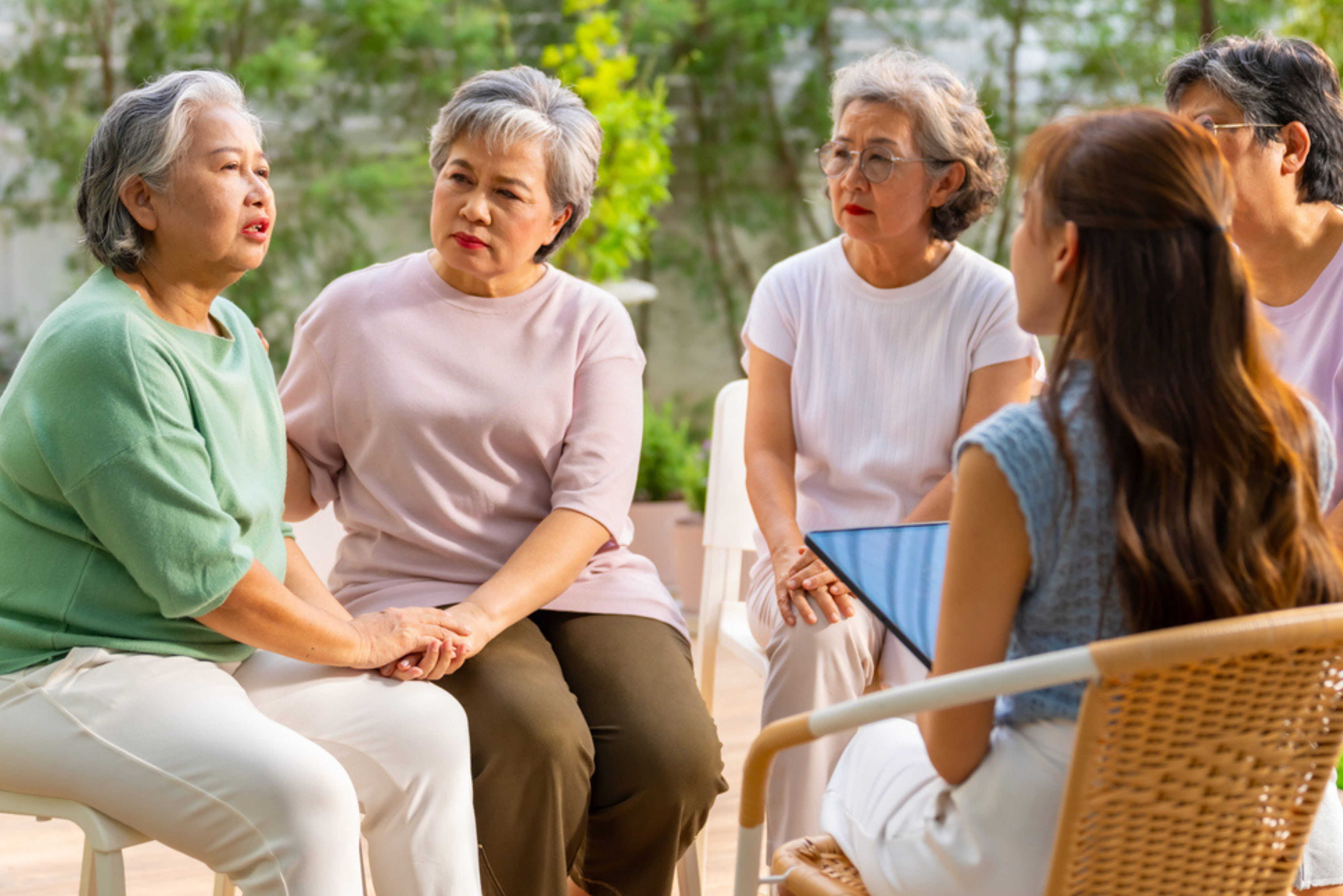Living with connection, meaning and hope
At Catholic Healthcare, we are committed to meeting the pastoral and spiritual care needs of our residents and clients by walking alongside them. We listen deeply as they share their feelings of joy, sorrow, pain, fear, and hope.
Our dedicated team of professional and inclusive Spiritual and Pastoral Care Coordinators provides spiritual and pastoral care throughout life’s journey, honouring each person’s background, faith, or belief system. We help to facilitate connections in line with each person’s personal preferences, supporting them to find meaning, purpose, and hope.
Our spiritual and pastoral care services include
-
Offer emotional and spiritual support
-
Support personal or religious practices through rituals such as sacramental services
-
Provide comfort through grief and loss
-
Create space to share stories and emotions
-
Help explore life’s meaning and purpose
-
Gently support conversations around suffering
-
Reconnect people with what matters most
-
Be present with empathy and care
Spiritual and pastoral care is a fundamental ministry in the Catholic Tradition and an integral part of our Residential Aged Care and Home Care Services teams.
Our approach to spiritual and pastoral care
Presence
Being alongside you, wherever you are
Companionship
Listening deeply and walking beside you
Reflection
Facilitating prayer, rituals and meaningful reflection
Connection
Linking you with faith communities, volunteers and social groups
Three ways to access spiritual and pastoral care with us
We offer flexible spiritual and pastoral care options tailored to your circumstances:
Want to learn more about spiritual and pastoral care support?
If you or a loved one would benefit from spiritual and pastoral care, or if you’d simply like to understand more about what’s involved, we’re here to help.
Spiritual and Pastoral Care frequently asked questions
-
1. What is Spiritual and Pastoral Care?
Spirituality is the way we seek and express meaning and purpose; the way we experience our connection to the moment, self, others, our world and the significant or sacred. Spiritual and Pastoral care occurs in a compassionate relationship. It responds to our search for meaning, self-worth, and our need to express ourselves to a sensitive listener.
-
2. Is Spiritual and Pastoral Care religious?
Not necessarily. While spiritual and pastoral care can include religious support for those who want it, it’s really about meeting each person where they are. It’s about connection, comfort, and meaning—whether that’s through faith, reflection, storytelling, nature, or simply having someone to listen. It’s inclusive, respectful, and tailored to the individual—whatever their beliefs, background, or life journey.
-
3. What will the Spiritual and Pastoral Care cost?
Spiritual and Pastoral Care is available at our Residential Aged Care Homes and for our Home Care Services clients through Home Care Packages (HCP) and Commonwealth Home Support Programme (CHSP) government funding. If you would like to know more about pricing, please speak to our friendly team on 1800 225 474.
-
4. Who will provide my care?
Your care will be provided by our dedicated Spiritual and Pastoral Care Coordinators — compassionate professionals trained to support your emotional, spiritual, and cultural wellbeing. They’re here to walk alongside you, to listen, to offer comfort, and to help you find meaning and connection in your own way. Whether it’s through conversation, quiet presence, prayer, or simply being there when you need someone, they offer respectful, personalised support that honours your life story and values.
-
5. What do Spiritual and Pastoral Care Coordinators do?
Spiritual and Pastoral Care Coordinators offer gentle, compassionate support to residents, clients and families — whatever their beliefs may be. They provide a listening ear, help explore life’s meaning and purpose, and create a safe space for people to share personal stories, grief, or moments of reflection. Whether through prayer, quiet presence, or simply being there during difficult times, they help individuals reconnect with what matters most — faith, hope, relationships, and inner peace.
-
6. What support do we provide for families and carers?
We provide support to families and carers in the ways below:
- Compassionate grief-and-loss guidance, with referrals to professional counselling
- Restorative respite day reflections and family prayer gatherings
- Spiritual and pastoral-led assistance and advocacy through aged care transitions
If you'd like to know more about how we provide spiritual and pastoral care support, please speak to our friendly team on 1800 225 474.
Latest news in our home care services
Acknowledgement of Country
Catholic Healthcare acknowledges the Traditional Custodians of the lands on which we live, work, and care. We pay our respects to Elders past and present, and honour the enduring connection of Aboriginal and Torres Strait Islander peoples to Country.










